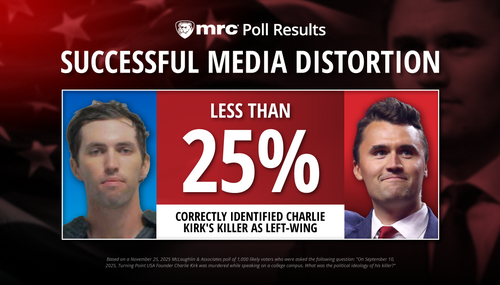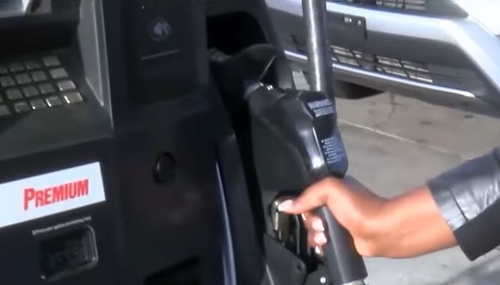 On Thursday's New Day, CNN's John Berman did his best to defend the Obama administration's secret shipment of $400 million to Iran right before the Islamist regime released four American prisoners. Former Rep. Mike Rogers criticized the payment, but Berman countered that "the President...said money was going there...We did not have the details about the plane...the euros — things like that." He later underlined, "Isn't the key to diplomacy...that everyone gets to declare victory?...don't you try to strike a deal, where Iran can say one thing happened; and the United States can say the other thing?" [video below]
On Thursday's New Day, CNN's John Berman did his best to defend the Obama administration's secret shipment of $400 million to Iran right before the Islamist regime released four American prisoners. Former Rep. Mike Rogers criticized the payment, but Berman countered that "the President...said money was going there...We did not have the details about the plane...the euros — things like that." He later underlined, "Isn't the key to diplomacy...that everyone gets to declare victory?...don't you try to strike a deal, where Iran can say one thing happened; and the United States can say the other thing?" [video below]
The anchor brought on Rogers and The Daily Beast's Kimberly Dozier for their take on the hundreds of millions to Iran. Berman first asked the former Republican politician, "We knew that the Iranians were getting money when this deal was struck. So what's the key issue now to you?" Rogers replied, in part, that "it's dangerous to set this precedent that there will be money exchanged — either through a wink and a nod and a black bag in the dark of the night — for American hostages." He also pointed out that "this may be in violation of our own sanctions rules."
The guest, who is now a CNN host, continued that "the judgment on this is God-awful; and I think that's exactly why they did it in the middle of the night, with an unmarked airplane, with foreign currency, to pay off something that, if this were true — that they wanted to do this in a way that was up front about a legal case — you wouldn't have done any of that. You would have done it very open."
Berman then interrupted with his argument that "the President did say it was happening....We did not have the details about the plane...the euros — things like that." He then asked Dozier for her response to Rogers. She agreed that "the problem is the timing," and soon noted that "the fact of the matter is, this $400 million arrived before the hostages were released. So it's even been seized by some members of the Revolutionary Guard Corps as a — quote/unquote 'ransom payment.' It looks bad." The CNN anchor followed up by continuing his defense of the Obama administration:
BERMAN: ...I hear from...people who say the criticism is unfounded, Kimberly — you know, correlation is not causation. In diplomacy, we have a lot of situations like this, don't we?
KIMBERLY DOZIER, CONTRIBUTING WRITER, THE DAILY BEAST: Yeah. It's always going to look messy after the fact. Somebody had to blink first. Someone had to do that good faith or that leap of faith — and the U.S. did it with this plane load of cash. Now, the White House spokesman is saying this wasn't ransom. It all depends on where you sit; how you look at it; how you label it. They're really going to have a hard time getting the Republicans to let this one go.
After letting Rogers again criticize the monetary shipment, Berman returned to his diplomatic line of argument: "Isn't the key to diplomacy, Kimberly, that everyone gets to declare victory? I mean, the fact — don't you try to strike a deal, where Iran can say one thing happened; and the United States can say the other thing happened; and everyone can be right — or everyone can be wrong, frankly, all at the same time?" Dozier answered, "Absolutely. And, yes, that's what happened here — until someone disclosed the timing of this deal."
The full transcript of the Mike Rogers/Kimberly Dozier segment from CNN's New Day on August 4, 2016:
JOHN BERMAN: The Wall Street Journal is reporting senior Justice Department officials did not want to send a plane filled with $400 million to Iran at the same time four U.S. prisoners were released. Critics say the money amounts to ransom. The White House says, no, it doesn't.
Joining us to discuss: CNN national security commentator and former Republican chairman of the House Intelligence Committee, Mike Rogers. He's also the host of the CNN show 'Declassified.' And Kimberly Dozier, CNN global affairs analyst and a contributing writer for The Daily Beast. Mike, Mr. Chairman, Congressman — talk to me about what you think the key issue is here. We knew that the Iranians were getting money when this deal was struck. So what's the key issue now to you?
[CNN Graphic: "Cash To Iran; Was U.S. Cash Payment To Iran Ransom Money?"]
MIKE ROGERS, (R), FORMER CHAIRMAN, HOUSE INTELLIGENCE COMMITTEE: Well, two things — so the deal itself had some release of funds that were Iranian funds to begin with. This is, to me, very, very different. And to some notion that these were independent events that all coincided on the course of two days just is not plausible — and that's the problem.
So it's two things: one, it's dangerous to set this precedent that there will be money exchanged — either through a wink and a nod and a black bag in the dark of the night — for American hostages. That's dangerous — not because of the message it sends to Iran; that's bad enough — but what it sends to countries in the region that also have an appetite for cash like this. That's a big problem. Two, this may be in violation of our own sanctions rules — that there can be no significant cash transactions that helps materially support Iran's other programs — including their missile program. They're still the leading state sponsor of terror.
So, I mean, the judgment on this is God-awful; and I think that's exactly why they did it in the middle of the night, with an unmarked airplane, with — with foreign currency, to pay off something that, if this were true — that they wanted to do this in a way that was up front about a legal case — you wouldn't have done any of that. You would have done it very open; you would have been — you would have been full disclosure — both the Congress and the committees of jurisdiction—
[CNN Graphic: "U.S. Makes $400 Million Payment To Iran On Day Prisoners Freed; WSJ: Justice Officials Raised Concerns About Payment Timing"]
BERMAN: Well, but the President did say—
ROGERS: That's what worries me—
BERMAN: But the President did say it was happening. He did say $400 million go — he said money was going there. It was reported — $400 million that day. We did not have the details about the plane — you know, the euros — things like that.
Kimberly, your response to Chairman Rogers?
KIMBERLY DOZIER, CONTRIBUTING WRITER, THE DAILY BEAST: Well, the problem is the timing. Yes, the U.S. had been holding $400 million ever since the shah of Iran paid it to the U.S. as a down payment towards weapons back in 1979. Now, the U.S. stood to have to pay a lot more, according to the case that was working its way forward through The Hague. But the fact of the matter is, this $400 million arrived before the hostages were released. So it's even been seized by some members of the Revolutionary Guard Corps as a — quote/unquote 'ransom payment.' It looks bad.
At the same time, within Iran — you know, you have this competition between the Revolutionary Guard Force and the Iranian foreign ministry and the more liberal government that negotiated this deal — liberal in relation to the Guards Force — and they wanted a sign of good faith to seize on. They told U.S. negotiators they needed this.
BERMAN: Is this — you know, I hear from critics — or actually, supporters of the deal — or people who say the criticism is unfounded, Kimberly — you know, correlation is not causation. In diplomacy, we have a lot of situations like this, don't we?
DOZIER: Yeah. It's always going to look messy after the fact. Somebody had to blink first. Someone had to do that good faith or that leap of faith — and the U.S. did it with this plane load of cash. Now, the White House spokesman is saying this wasn't ransom. It all depends on where you sit; how you look at it; how you label it. They're really going to have a hard time getting the Republicans to let this one go.
[CNN Graphic: "$400 Million Payment Part of $1.7 Billion Settlement Of Claims"]
BERMAN: Chairman, you wanted to jump in there. I saw you nodding.
ROGERS: Well, I mean, again, this — the whole problem here is if this, in fact, was the settlement of a legal case — which the case has not been settled and was working its way through the court — doesn't mean there was going to be an adversary position. The argument of the administration is, it could cost us $10 billion. That's a fair argument. I give them that.
But the timing of this is so completely wrong; and the way that they delivered the cash; and then, the transaction that happened, it's not plausible to look at this deal — in the order of which it happened; in the way they delivered the cash — it just doesn't pass the smell test. And the problem is, when you have the IRGC, who is out there saying it's ransom — guess what? In the reality of the business of diplomacy, intelligence, and national security, it's ransom. That's where the problem is. And, in fact, we're going to have to look at — I hope Congress looks at — the fact that they may have violated their own sanctions regime for a cash transaction that is illegal under sanctions that they put into — their own administration put in place on the Iranian missile program.
So, it's that — this is the problem. It's working across purposes. And, again, I think that's why they did it in the dark of night and — and tried to not disclose the fact of the — the transaction itself, and how the transaction occurred and what was the purpose of the transaction.
[CNN Graphic: "White House Denies Ransom Payment For Prisoners"]
BERMAN: But — but isn't the key to diplomacy, Kimberly, that everyone gets to declare victory? I mean, the fact — don't you try to strike a deal, where Iran can say one thing happened; and the United States can say the other thing happened; and everyone can be right — or everyone can be wrong, frankly, all at the same time?
DOZIER: Absolutely. And, yes, that's what happened here — until someone disclosed the timing of this deal. The ironic thing is that the CIA director and others have been out publically talking about the fact that Iran, in general, has been having a hard time getting ahold of the cash from the financial markets that was supposed to be a windfall from this deal. And that the Iranian Guards Force — in particular, the Quds Force — has been complaining that not enough of a cash windfall has gone to them.
BERMAN: Kimberly Dozier, Mike Rogers, thanks so much for being with us — appreciate it.





